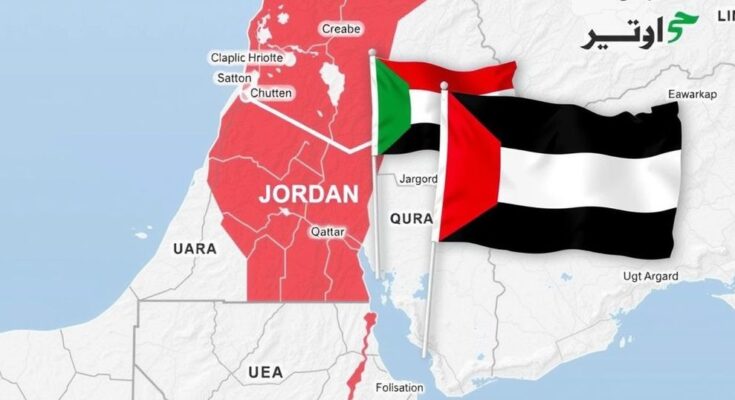A new map released by Israel claiming historical territorial rights has prompted widespread outrage among Arab nations, particularly Jordan, Qatar, and the UAE, who have condemned it as a violation of sovereignty. The map includes occupied territories from Palestine and neighboring countries, provoking responses from Palestinian entities including Hamas. Strong denunciations signal growing tensions in the region related to issues of sovereignty and expansionism.
A significant diplomatic crisis has arisen following the release of a new map by Israel, which asserts historical territorial claims encompassing not only Palestine but also substantial parts of Jordan, Lebanon, and Syria. This depiction, presented by the Israeli Ministry of Foreign Affairs on its Arabic-language social media accounts, has ignited widespread condemnation from multiple Arab nations. They argue that the map represents a blatant violation of sovereignty and includes occupied territories, thereby promoting what they describe as the concept of “Greater Israel.”
In its social media post, the Ministry stated, “Did you know that the Israeli empire was established 3,000 years ago?” This assertion was accompanied by a historical narrative detailing ancient Jewish governance in the region, emphasizing the reigns of King Saul, King David, and King Solomon. However, this portrayal has incited backlash from various entities, particularly Palestinians and neighboring Arab countries, who view it as an aggressive assertion of territorial claims.
Reactions from Jordan, the United Arab Emirates (UAE), and Qatar have been emphatically critical, each issuing statements condemning the presentation of the map. The Jordanian Ministry of Foreign Affairs characterized the post as “accusations and confusion,” arguing that it is indicative of right-wing Israeli attempts to obstruct the establishment of a sovereign Palestinian state. Qatar’s foreign ministry described the map as a “blatant violation” of international standards, calling for global pressure on Israel to restrain its expansionist goals.
The UAE echoed these sentiments, condemning the so-called “historical Israel” map as a deliberate strategy to perpetuate occupation. They articulated their strong rejection of any actions that undermine the legal status of the occupied Palestinian territories, accentuating the threat these actions pose to regional peace and stability. Hamas and the Palestinian administration have also expressed their disapproval, demanding international intervention against what they perceive as Israel’s ongoing territorial ambitions.
The controversy surrounding Israel’s new map is deeply intertwined with longstanding historical and political tensions between Israel and its neighboring Arab states. The assertion of territorial rights based on ancient claims serves as a catalyst for renewed discussions on sovereignty and statehood in a region where territorial disputes have led to prolonged conflicts. The concept of ‘Greater Israel’ has been a focal point of contention, prompting strong responses from countries that view such claims as a violation of established international norms and agreements regarding the Israeli-Palestinian conflict.
The dissemination of Israel’s controversial new map has escalated diplomatic tensions with several Arab nations, highlighting the fragility of peace negotiations in the region. Strong condemnations from Jordan, Qatar, and the UAE signal a unified front against perceived Israeli expansionism, while calling for international accountability. As reactions continue to unfold, the international community’s role in addressing these grievances remains critical to fostering stability and promoting dialogue in the volatile Middle East.
Original Source: www.india.com




